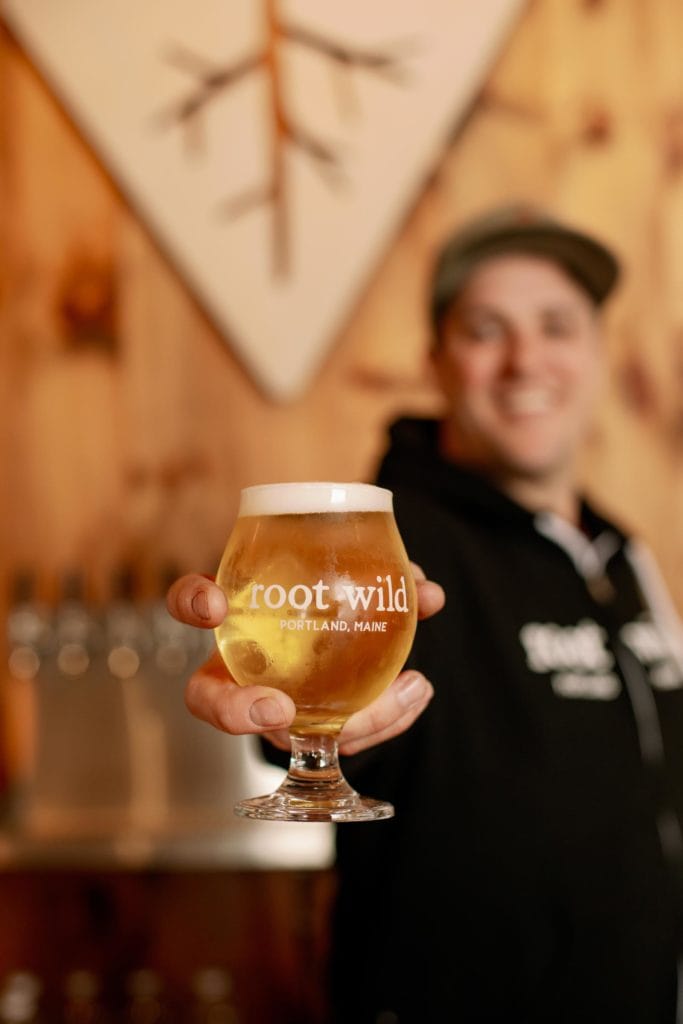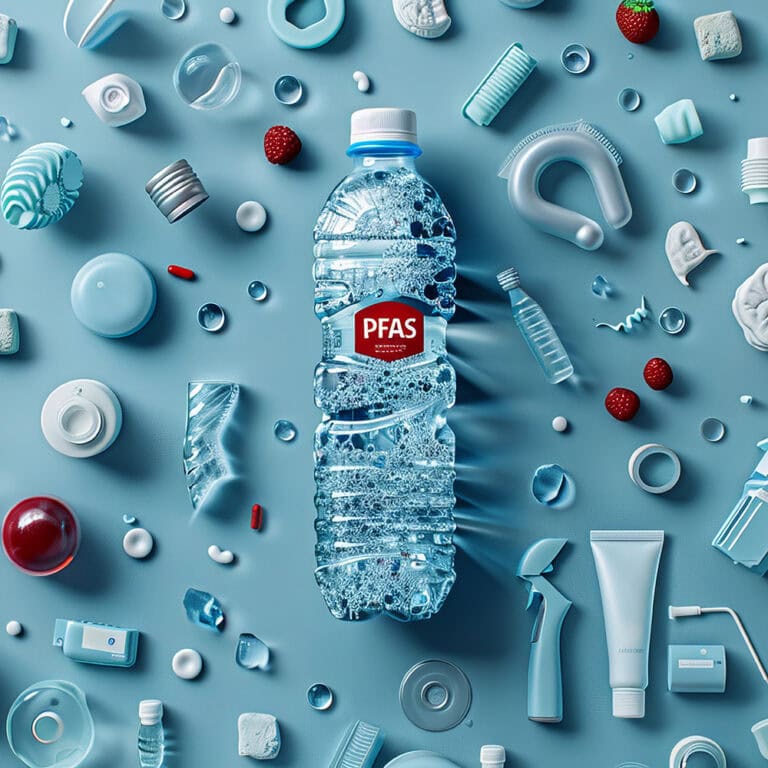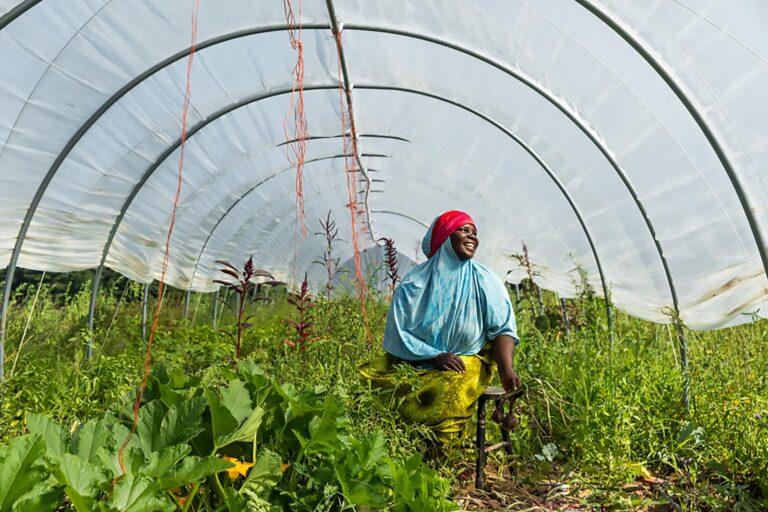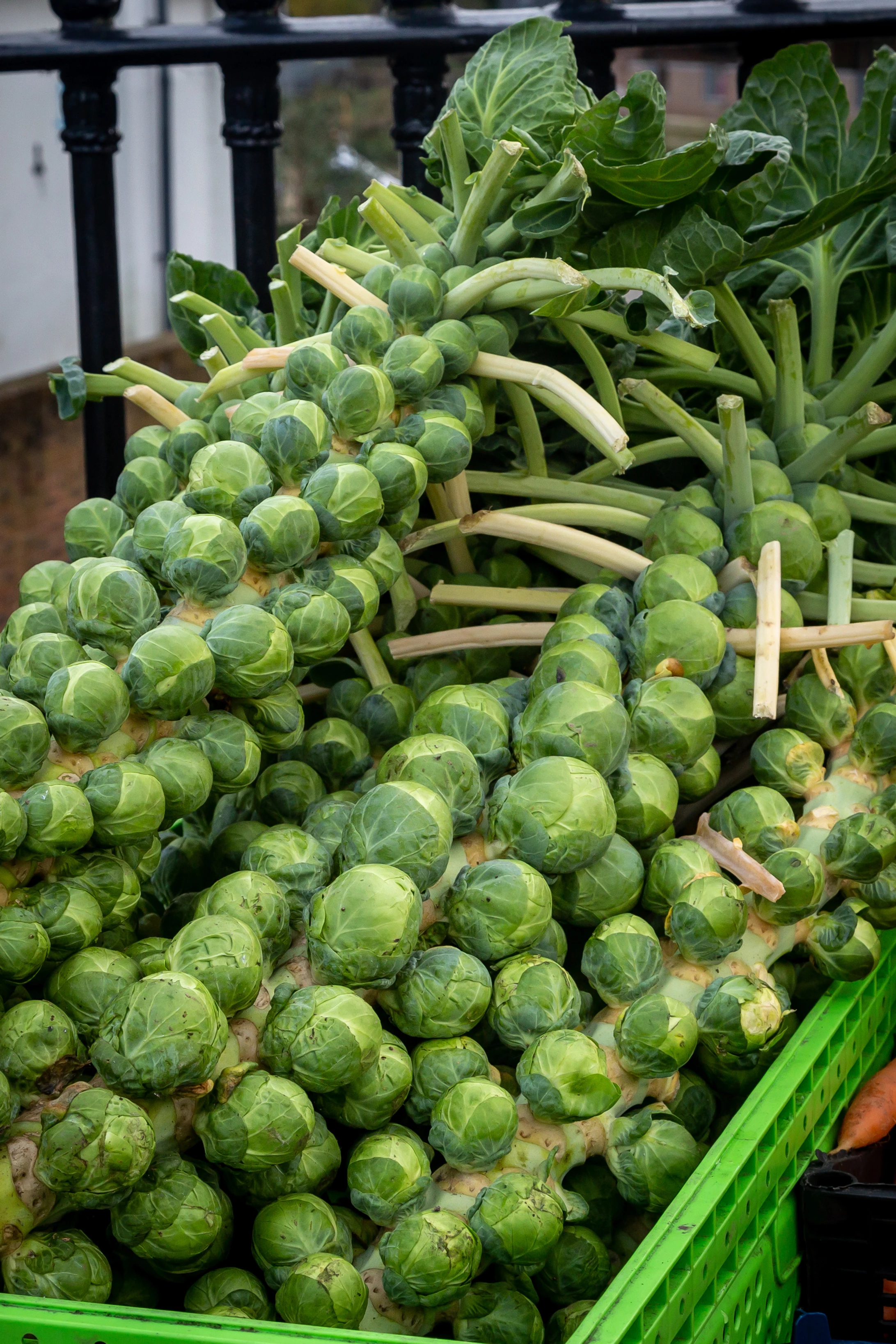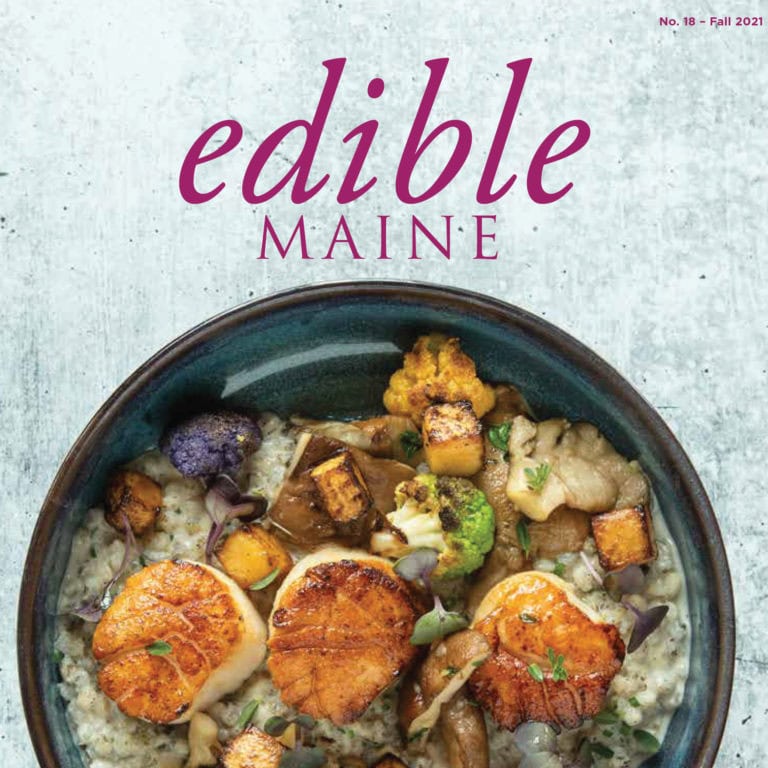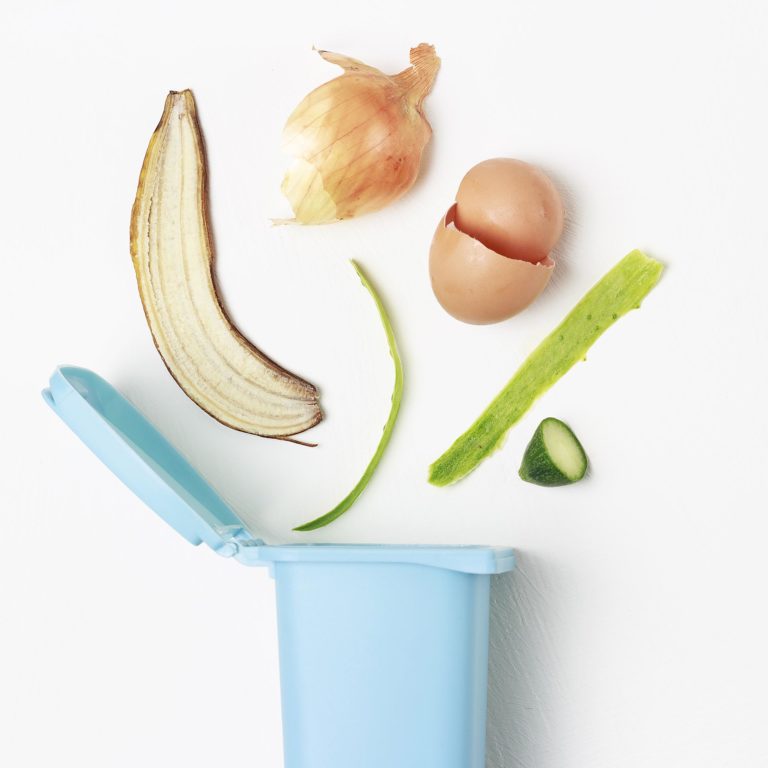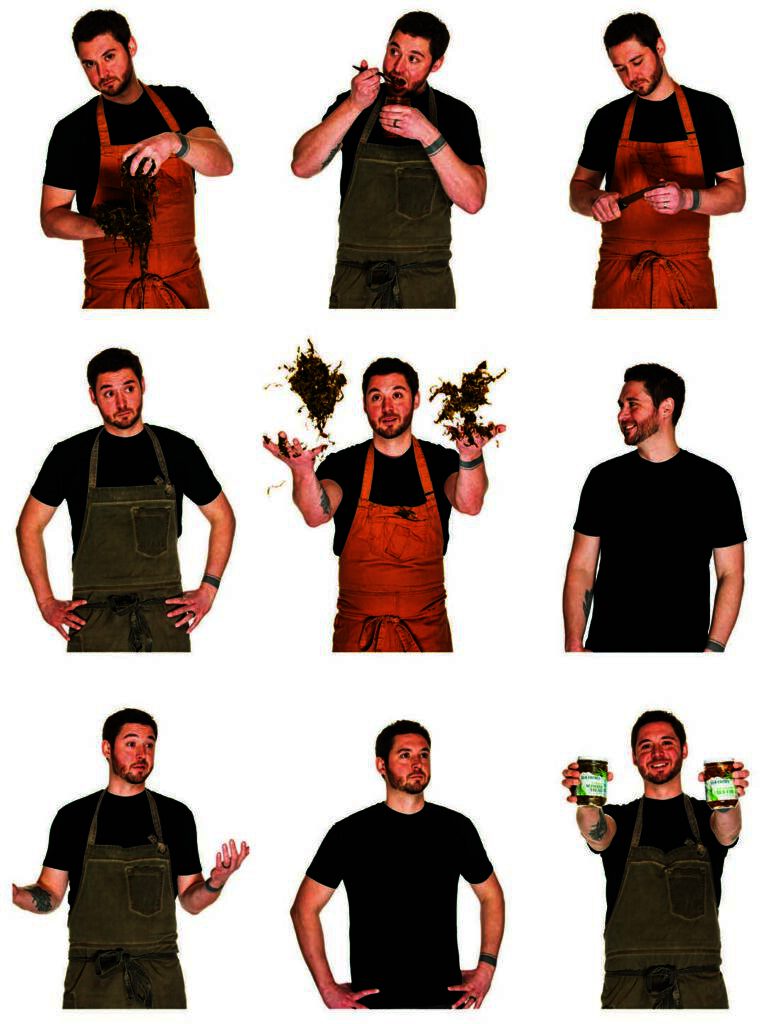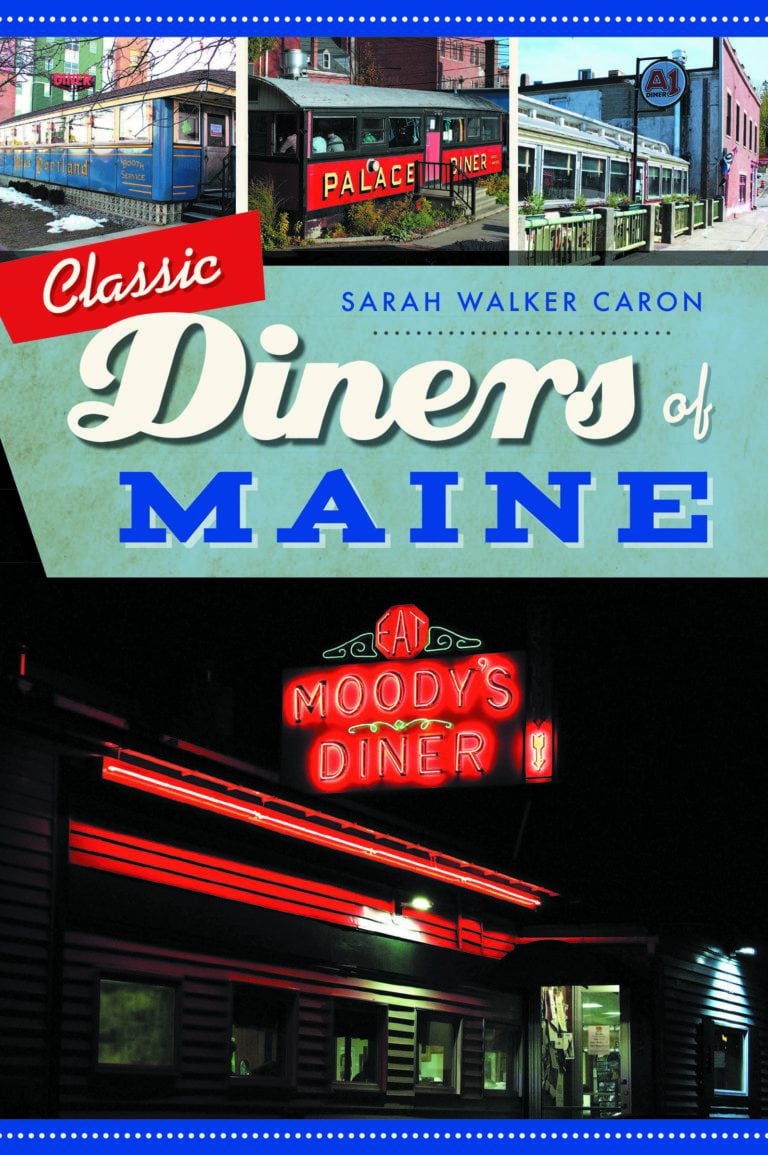“I’m not really a tea guy—I drink coffee in the morning.” Thus speaks Reid Emmerich, kombucha maker and owner of Root Wild Kombucha in Portland. For Emmerich, kombucha was not love at first sip.
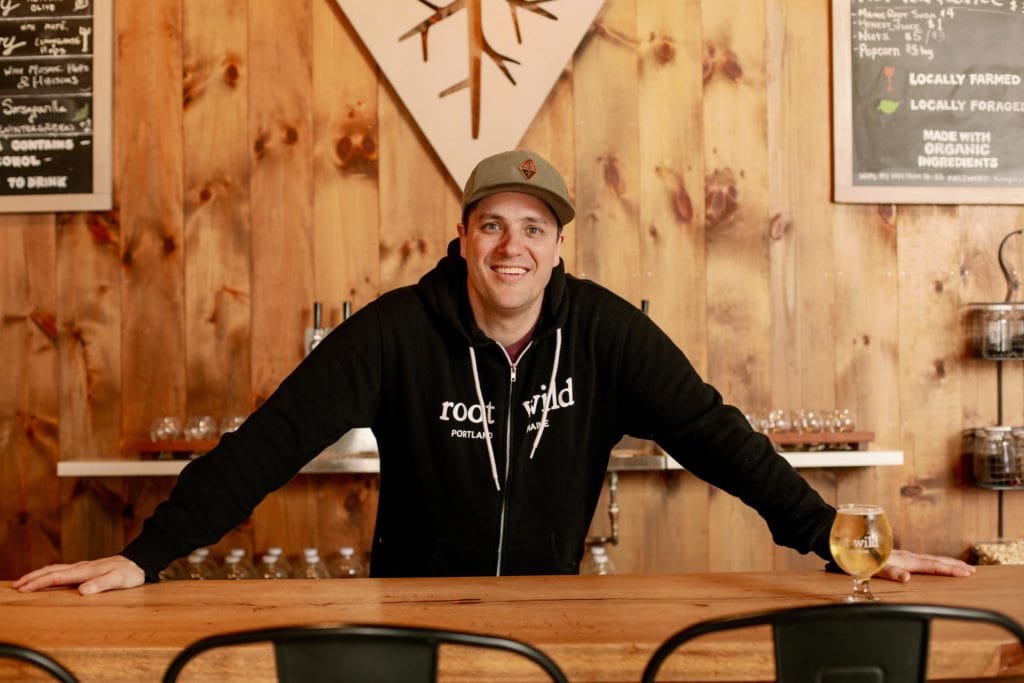
In fairness, kombucha (a fermented tea product) is hardly everyone’s cuppa. You may have looked in disgust at that bottle containing a living, blobby thing floating in it and wondered what the deal was. Well, so did Emmerich. “What is this stuff, and why is it $4 a bottle?” was his initial reaction.
It was in 2008, as kombucha’s popularity was expanding, that Emmerich moved to Portland. He had been doing a lot of traveling and restaurant work. He’d been a ski instructor in Vermont and a nature guide on Cape Cod. His degree in environmental science was finished, and there was this girl he’d met who lived on Munjoy Hill.
Once the two were settled in their apartment, Emmerich began exploring his interest in fermented foods. He brewed beer and made kimchi and hard cider, along with gallon jars of kombucha. Emmerich, 41, says he wasn’t a huge kombucha fan, but his girlfriend, now wife, drank it. “We usually drank it together on a Saturday morning as a Friday night recovery-ish beverage.”
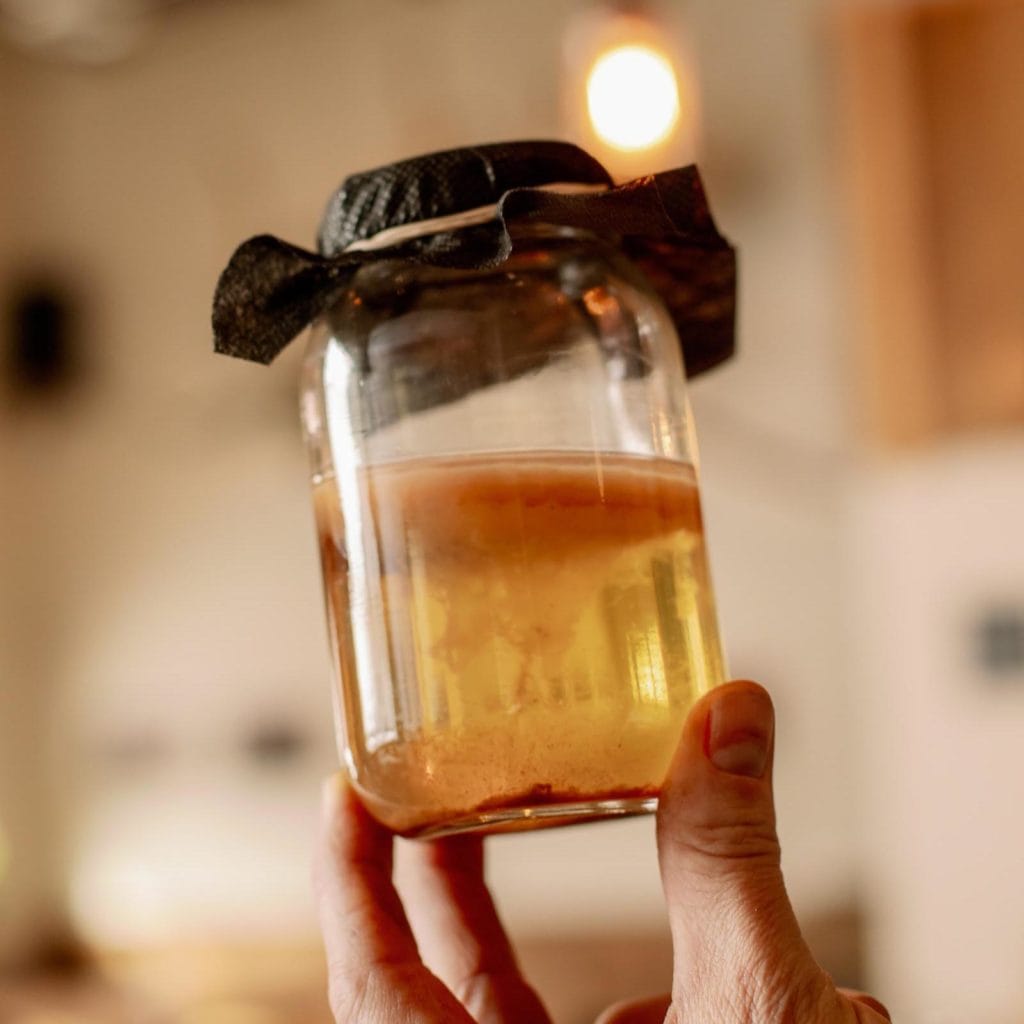
But they weren’t alone: Family, friends, and associates began telling him how good his “booch” was. “I heard from a lot of people that this was the best kombucha they had ever had and that I should do something with it. I heard that enough that I decided to act on it.” Emmerich’s gallon jars turned into multiple two-gallon jars, “and soon I was bottling it, experimenting with flavors, using local ingredients”—but mostly just giving it away. His first real cash sales came when his wife started selling his six-packs to her kombucha-drinking coworkers. “These were my first sort-of black market kombucha sales.”
Then in 2010, he got wind of a kombuchery startup in Portland that became the famed Urban Farm Fermentory. Emmerich became the kombucha maker there and remained for eight years. In 2018, he left and started Root Wild on Portland’s Washington Avenue. It’s a kombuchery, a bar, and a tasting room. “It’s been awesome,” he says. “We love the spot.”
Kombucha has been popular with holistic health devotees for centuries, and with Coca-Cola now selling kombucha, you might say it’s finally gone mainstream. Emmerich says most people drink kombucha as a healthy alternative to fruit juice, soda, or alcohol, or just because they love it. It does contain a tiny bit of alcohol: less than 1%.
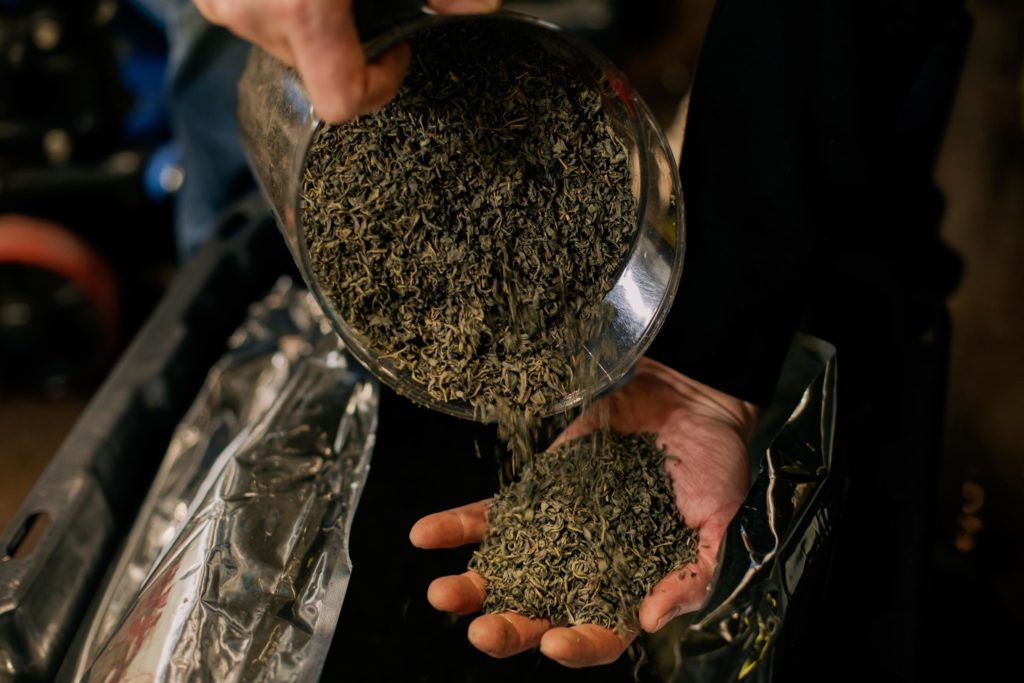
To be clear, any naturally fermented product contains alcohol—it’s a byproduct of the fermentation process. Commercially made kombucha can be pasteurized and stripped of alcohol, a costly project requiring additional equipment, or diluted with water to lower the alcohol by volume (ABV) percentage and shelve the product alongside the fruit juices at supermarkets. But Root Wild’s kombucha is made in small batches, by hand, and naturally contains about 0.5% alcohol. It also contains caffeine because Emmerich’s batches are made from either black or green tea.
Then there are the probiotics, antioxidants, B vitamins, and other elements of kombucha—some proven, some simply believed to be health-giving. “To be honest with you, as a brewer that’s not the angle I take. What I take is the fact that it’s simple ingredients [and] a neat alternative to other beverages,” says Emmerich. “I’m not a doctor, so I couldn’t tell you how many populations of bacteria are in my kombucha and what they’re going to do once they’re inside your body. More than anything, I like the way it tastes and I like it as a vehicle for flavor exploration.”
Behind Emmerich’s light-filled, inviting bar at the front of the shop is a warren of small rooms—Area 51 for the live microbes and bacteria at work. “I brew up a really big batch of sweet tea, cool it down and aerate it, then add a culture to it which is a previous batch of my kombucha.” He lets it ferment for three weeks, then mixes in the flavorings Root Wild has become so admired for. To get those ingredients, he often forages for fruits and botanicals. One batch might be made with peaches Emmerich picked from local private residences (with permission, of course), but “some of it is trudging through the woods avoiding poison ivy and ticks,” he says. He gathers beach roses along the coast when they’re popping and goes on scouting missions for elderberries. He has a friend with tons of rhubarb and a mother-in-law with a quince tree.
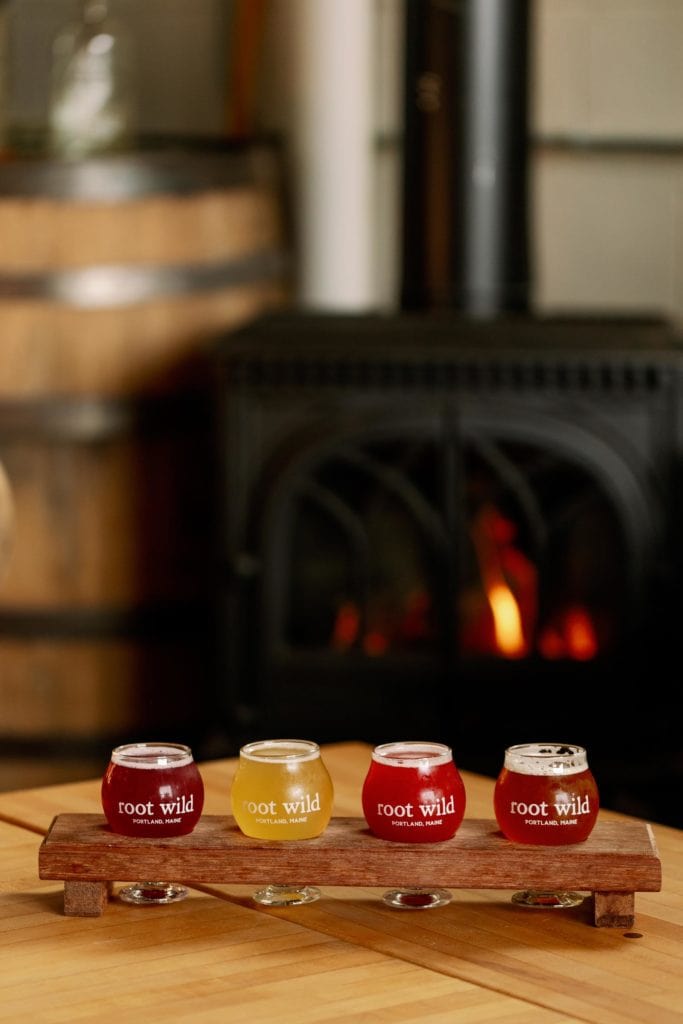
The parameters for kombucha brewing haven’t really been set yet, Emmerich tells me, so it’s acceptable to put dandelion root or hot peppers in kombucha, for example. Root Wild’s philosophy is “whatever we can get when we can get it, and sharing what we know about what is available.”
Emmerich’s mission is to keep his business local, community based, and small scale. “There is a reason I am still the guy making the kombucha,” he says. “It’s because I love it.”


